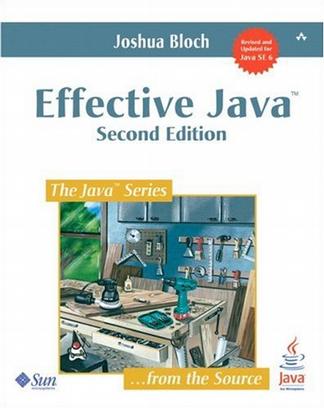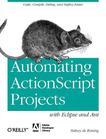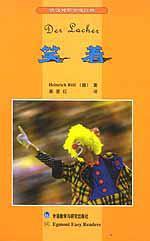 Effective Java: Second Editiontxt,chm,pdf,epub,mobi下载
Effective Java: Second Editiontxt,chm,pdf,epub,mobi下载作者: [美] Joshua Bloch 出版社: Addison-Wesley 副标题: Java 出版年: 2008-05-28 页数: 346 定价: USD 54.99 装帧: Paperback ISBN: 9780321356680 内容简介 · · · · · ·Written for the working Java developer, Joshua Bloch's Effective Java Programming Language Guide provides a truly useful set of over 50 best practices and tips for writing better Java code. With plenty of advice from an indisputable expert in the field, this title is sure to be an indispensable resource for anyone who wants to get more out of their code. As a veteran developer ... 作者简介 · · · · · ·Joshua Bloch is chief Java architect at Google and a Jolt Award winner. He was previously a distinguished engineer at Sun Microsystems and a senior systems designer at Transarc. Bloch led the design and implementation of numerous Java platform features, including JDK 5.0 language enhancements and the award-winning Java Collections Framework. He coauthored Java™ Puzzlers (Addiso... 目录 · · · · · ·ForewordPreface Acknowledgments 1 Introduction 2 Creating and Destroying Objects Item 1: Consider static factory methods instead of constructors · · · · · · () Foreword Preface Acknowledgments 1 Introduction 2 Creating and Destroying Objects Item 1: Consider static factory methods instead of constructors Item 2: Consider a builder when faced with many constructor parameters Item 3: Enforce the singleton property with a private constructor or an enum type Item 4: Enforce noninstantiability with a private constructor Item 5: Avoid creating unnecessary objects Item 6: Eliminate obsolete object references Item 7: Avoid finalizers 3 Methods Common to All Objects Item 8: Obey the general contract when overriding equals Item 9: Always override hashCode when you override equals Item 10: Always override toString Item 11: Override clone judiciously Item 12: Consider implementing Comparable 4 Classes and Interfaces Item 13: Minimize the accessibility of classes and members Item 14: In public classes, use accessor methods, not public fields Item 15: Minimize mutability Item 16: Favor composition over inheritance Item 17: Design and document for inheritance or else prohibit it Item 18: Prefer interfaces to abstract classes Item 19: Use interfaces only to define types Item 20: Prefer class hierarchies to tagged classes Item 21: Use function objects to represent strategies Item 22: Favor static member classes over nonstatic 5 Generics Item 23: Don't use raw types in new code Item 24: Eliminate unchecked warnings Item 25: Prefer lists to arrays Item 26: Favor generic types Item 27: Favor generic methods Item 28: Use bounded wildcards to increase API flexibility Item 29: Consider typesafe heterogeneous containers 6 Enums and Annotations Item 30: Use enums instead of int constants Item 31: Use instance fields instead of ordinals Item 32: Use EnumSet instead of bit fields Item 33: Use EnumMap instead of ordinal indexing Item 34: Emulate extensible enums with interfaces Item 35: Prefer annotations to naming patterns Item 36: Consistently use the Override annotation Item 37: Use marker interfaces to define types 7 Methods Item 38: Check parameters for validity Item 39: Make defensive copies when needed Item 40: Design method signatures carefully Item 41: Use overloading judiciously Item 42: Use varargs judiciously Item 43: Return empty arrays or collections, not nulls Item 44: Write doc comments for all exposed API elements 8 General Programming Item 45: Minimize the scope of local variables Item 46: Prefer for-each loops to traditional for loops Item 47: Know and use the libraries Item 48: Avoid float and double if exact answers are required Item 49: Prefer primitive types to boxed primitives Item 50: Avoid strings where other types are more appropriate Item 51: Beware the performance of string concatenation Item 52: Refer to objects by their interfaces Item 53: Prefer interfaces to reflection Item 54: Use native methods judiciously Item 55: Optimize judiciously Item 56: Adhere to generally accepted naming conventions 9 Exceptions Item 57: Use exceptions only for exceptional conditions Item 58: Use checked exceptions for recoverable conditions and runtime exceptions for programming errors Item 59: Avoid unnecessary use of checked exceptions Item 60: Favor the use of standard exceptions Item 61: Throw exceptions appropriate to the abstraction Item 62: Document all exceptions thrown by each method Item 63: Include failure-capture information in detail messages Item 64: Strive for failure atomicity Item 65: Don't ignore exceptions 10 Concurrency Item 66: Synchronize access to shared mutable data Item 67: Avoid excessive synchronization Item 68: Prefer executors and tasks to threads Item 69: Prefer concurrency utilities to wait and notify Item 70: Document thread safety Item 71: Use lazy initialization judiciously Item 72: Don't depend on the thread scheduler Item 73: Avoid thread groups 11 Serialization Item 74: Implement Serializable judiciously Item 75: Consider using a custom serialized form Item 76: Write readObject methods defensively Item 77: For instance control, prefer enum types to readResolve Item 78: Consider serialization proxies instead of serialized instances Appendix: Items Corresponding to First Edition References Index · · · · · · () |
 首页
首页



很好。挺不错的。
值得一看。挺有意思的。
细腻厚实
很不错的书